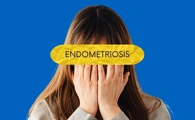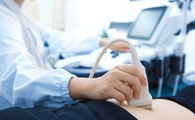

Low ovarian reserve affects around 10% of women and is characterized by a decline in the total number of oocytes a woman has. This decline not only reduces the quantity but may also affect the quality of the eggs. Many women wonder whether it’s possible to get pregnant with low ovarian reserve, and while the journey can be more complex, it is absolutely possible.
What Causes Low Ovarian Reserve?
There are many causes, which include various contributing factors:
- Genetic factors: Genetic predisposition can influence the number of eggs a woman is born with.
- Advanced age: Age is the most significant factor. As a woman ages, the quantity and quality of her eggs tend to decrease, increasing the risk of low ovarian reserve.
- Ovarian surgery: Surgical procedures on the ovaries, such as for cysts or endometriosis, may impact ovarian reserve.
- Radiotherapy and chemotherapy: Cancer treatments can damage the ovaries and reduce the egg supply.
- Autoimmune diseases: Some autoimmune conditions may attack the ovaries, negatively affecting the ovarian reserve.
Can I Still Get Pregnant with Low Ovarian Reserve?
Absolutely yes — it is possible to get pregnant with low ovarian reserve.
Low ovarian reserve does not necessarily mean infertility, and as long as a woman maintains regular menstrual cycles, natural conception is still possible.
However, once low ovarian reserve is identified, it is the responsibility of fertility specialists to offer counseling and, if pregnancy hasn’t occurred within 6 months, begin a thorough fertility assessment and provide all available options.
At Fertility Madrid, our team of experienced gynecologists specializes in stimulation protocols tailored for low ovarian reserve and will do everything in their power to help you achieve your dream of becoming a mother.
How Do I Know If I Can Get Pregnant with Low Ovarian Reserve?
Identifying low ovarian reserve is crucial for women trying to conceive. Some tests and indicators include:
- Hormonal tests: Measuring levels of hormones such as anti-Müllerian hormone (AMH) and follicle-stimulating hormone (FSH) can provide insights into ovarian reserve.
- Transvaginal ultrasound: This test evaluates the number of antral follicles, offering a clearer picture of ovarian reserve.
- Menstrual history: Irregular cycles or changes in cycle length may signal reduced ovarian reserve.
Can You Improve Ovarian Reserve?
Although ovarian reserve naturally declines with age, certain strategies may help preserve or improve it:
- Healthy lifestyle: Maintaining a healthy weight, exercising regularly, and avoiding tobacco and excessive alcohol can positively impact ovarian health.
- Fertility treatments: Fertility preservation options, such as egg vitrification (freezing), may be suitable for women who want to delay motherhood.
Book a free consultationDo you have any questions or need more information?
At Fertility Madrid, we specialise in treatments such as egg donation, in vitro fertilisation and artificial insemination, among others.
Please do not hesitate to contact our professionals at our fertility clinic and they will answer all your questions without obligation.
Other interesting news


Endometriosis: Symptoms the Disease, Effective Treatments, and FAQ

High Prolactin: Causes, Symptoms, Diagnosis, and Treatments

Exercise and Fertility Treatment: Is it Safe to Stay Active?

How to cope with an egg donation treatment?
